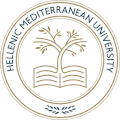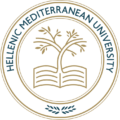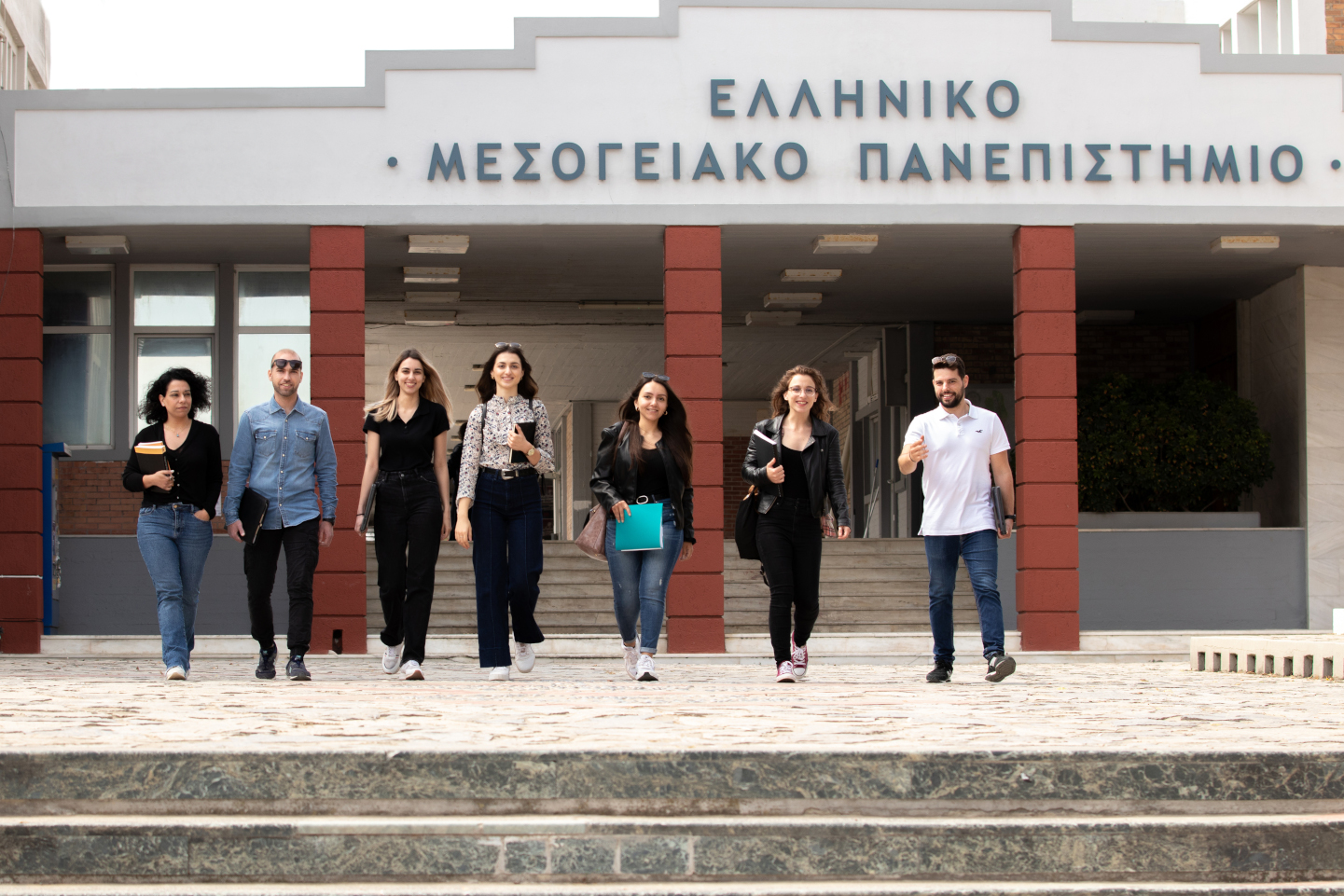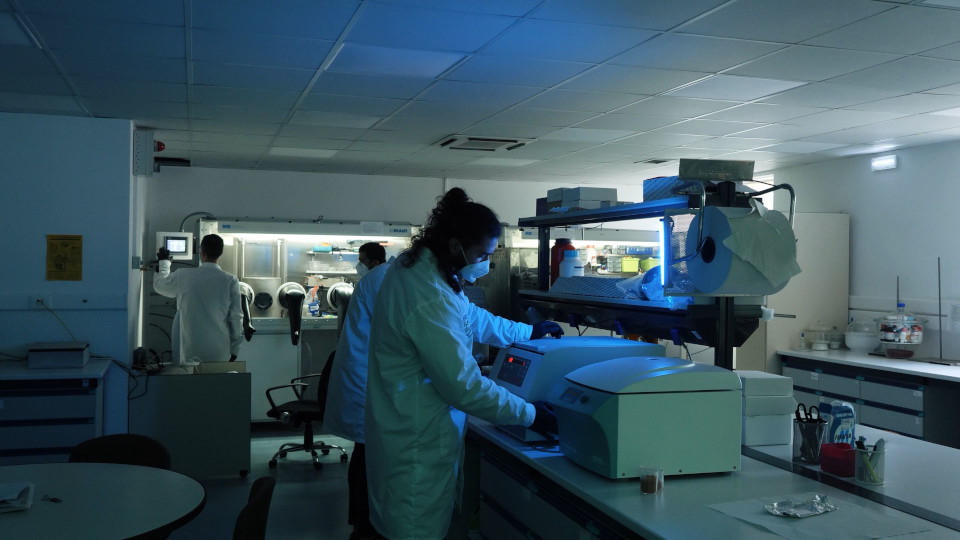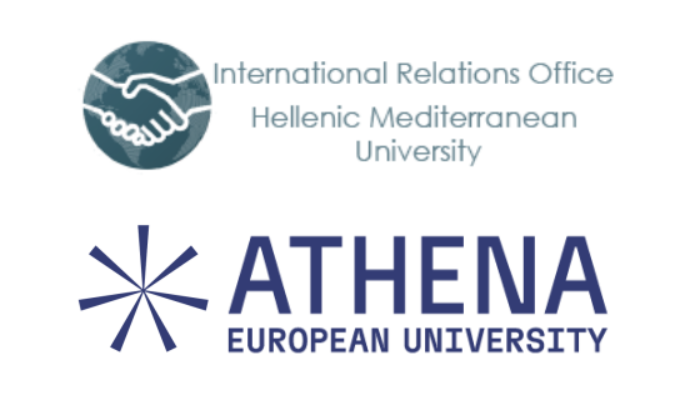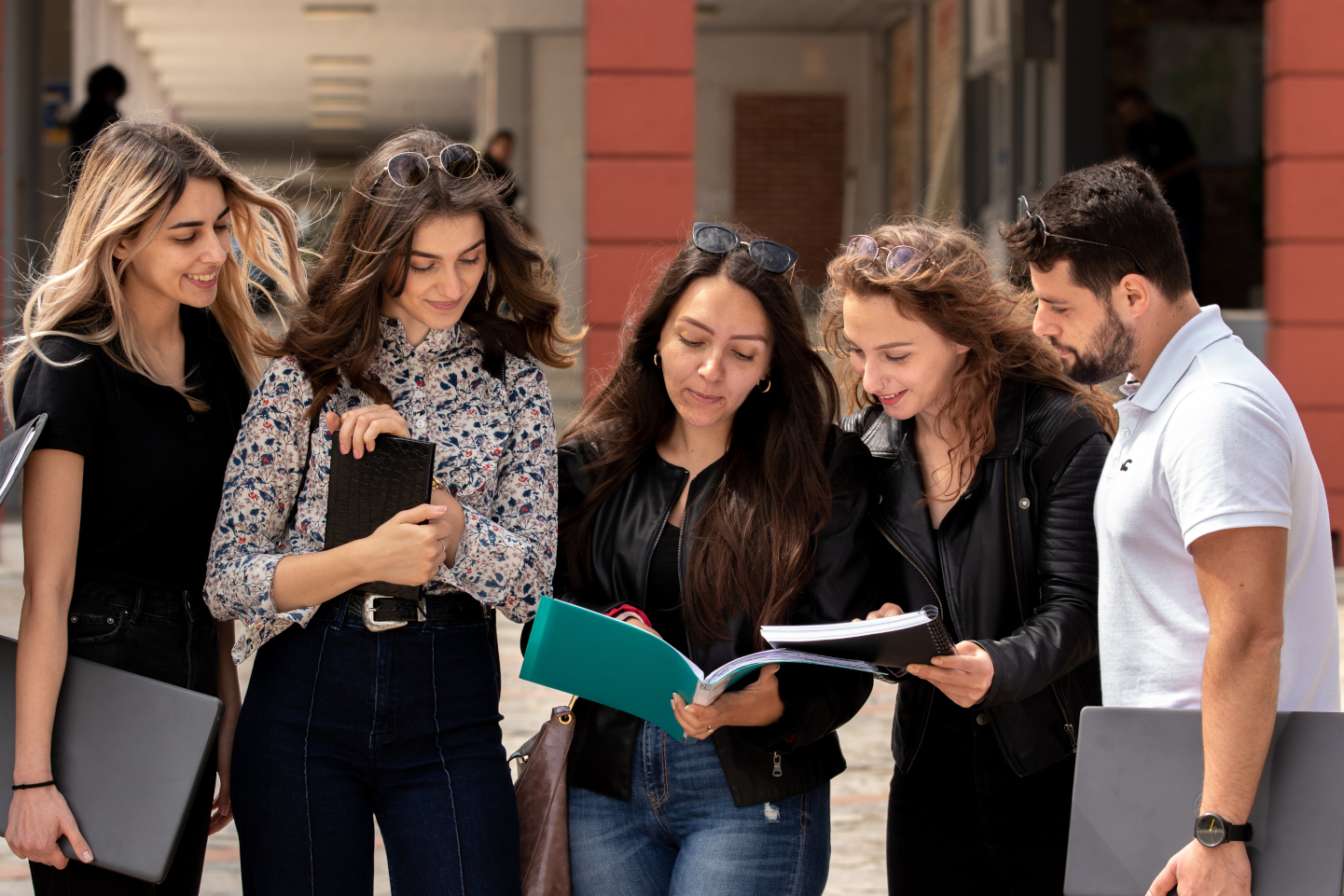Target: Green University
The HMU Environmental Policy focuses on constantly improving its environmental standards and operating on the principle of sustainable development. In order to ensure compliance with ecological, economical and social criteria, the HMU adopts the state-approved Environmental Impact Assessment of the Region of Crete, for provisions and management of environmental hazards that may be encountered in environments of education or research. The university thus achieves waste reduction, recovery of raw materials and energy, reduction of operational costs, steady progress, and raising environmental awareness in the HMU community and society in general. Fundamental concerns of the HMU environmental policy are the following:
-
Energy management
-
Recycling
-
Green Spaces policy
-
Accessibility
-
Bioclimatic architecture
-
Education
-
Raising awareness
The HMU commits to all the above by implementing:
-
the current EU and national legislation for controlling emissions in line with the environmental permit;
-
advocacy of education and research with ecological awareness and sensitivity, according to the principles of sustainable development;
-
constant monitoring of the environmental impact of HMU’s operations to keep ecological footprint at a minimum level;
-
collaboration with specialized contractors for waste management (i.e. waste collection, transfer, utilization, disposal), provided that standard environmental practices are met;
-
use of special anti-pollution technology systems for minimizing emissions to the environment;
-
functional recycling systems and effective utilization of by-products, in order to protect natural resources reserves and to minimize environmental impact;
-
engaging in open dialogue about environmental issues with state and independent organizations, local communities and the entire society;
-
staff training on environmental management and the effective use of methods and technologies designed to preserve and protect the environment.
Measures taken to control environmental impact
Laboratory waste management (liquid, gaseous and solid) by the School of Agriculture labs in the HMU Farm in Heraklion
Lab courses often involve the use of chemicals that produce liquid, solid or gaseous waste in relatively small amounts. Legal methods for safe disposal are employed in all cases, as per the HMU’s Environmental Impact Assessment. For this reason the HMU, and specifically the Directorate of the HMU Farm, collaborates with the Directorate of Rural Development in Heraklion, for the collection of pesticide formulations past their legitimate expiration date.
More specifically, the measures taken by the HMU for waste disposal are the following:
Under the supervision and coordination of the HMU Farm Directorate, pesticides are recorded and divided into categories, i.e. liquid and solid insecticides, liquid and solid fungicides, liquid and solid herbicides, plant regulatory liquid and solid substances, vacuum packing, corrupted or unlicensed pesticides. Pesticides are recorded by each laboratory and then divided and placed in cardboard boxes, according to the above-mentioned categories. During the process of registration, storage and separation, the staff is equipped with essential personal protective gear (uniform, gloves, masks, goggles etc), according to the instructions of the Agricultural Pharmacology Laboratory. Liquid lab waste from cleaning glassware or the use of chemical and other substances in small quantities are collected in special containers.
Moreover, solid and liquid lab waste are delivered to Envirochem Hellas S.A., a licensed company operating in disposal and safe management of hazardous waste.
In order to minimize the use of pesticides and fertilizers, we have started the process of transplant from soil to closed hydroponics system, while recycling the nutrient solution.
Energy management
The HMU has taken action in energy management of its premises:
-
Reduction of oil consumption. Sound operation and efficient energy use dictate regular maintenance of the central heating system by licensed professionals, as well as inspection of electromechanical equipment by the HMU Maintenance Department.
-
In the HMU facilities regular light bulbs have been replaced with low consumption light bulbs and standard operating procedure is being followed, as well as annual inspection and maintenance by the HMU, especially in the busiest university areas.
-
Records of electricity consumption per building, for monitoring the overall consumption of electrical energy.
-
Installation of Building Management System in various university buildings, and provisions for expanding the system’s full operation in all buildings.
-
The use of – in cases where it is possible – renewable energy sources in the HMU facilities, such as photovoltaics and small wind turbines, which up until now are used for research purposes or as displays in laboratories or other adjacent rooms. The university develops a strategic plan for infrastructure upgrading that is energy efficient.
-
Advice and guidelines to personnel for responsible use of cooling and heating units and exclusively when it is absolutely necessary.
Use of water
The HMU controls water consumption in all buildings, in outdoor areas, as well as the experimental and educational crops of the School of Agricultural Studies, by employing special methods for sound use of water, deficit irrigation, etc. The HMU has obtained a drilling license for the irrigation of crops.
Use of paper
We methodically reduce daily use of paper and we purchase recycled paper products. Use of paper has been significantly and immediately lowered by a series of digital procedures and applications in educational and administrative communications, i.e. student registration, course selection, supply of literary sources, installation and operation of digital services that provide information about grades, study programs etc, access to digital library from a distance, intra and extra-institutional document circulation, digital applications in bureaucratic procedures, communication and dissemination of information between employees, students and the general public via the university’s website and social media.
Recycling
An efficient number of recycle cans are located in appropriate areas, including waste containers for used packages (plastic, paper, aluminium, glass), light bulbs and lighting equipment, electric and electronic devices, toner cartridges, batteries and accumulators, as well as for composting organic waste.
For disposing of non-hazardous recyclable materials (paper, packages, metal), the HMU has placed collection bins and till their final delivery to the associate recycle company, they are kept in special storage. Electric and electronic devices are recurrently collected and gathered in a special HMU area until their final delivery to the associate recycle company.
Green Spaces policy
The university premises include a) pedestrian walkways of paved stones and steps and paved public outdoor spaces, b) public tree areas of high vegetation cover, such pine groves, c) flowerbeds of aromatic and ornamental indigenous plants.
Apart from a small territory that is covered by lawn, the HMU farm occupies a large part of the Heraklion premises, that includes greenhouse cultivation, vineyards, fruit plantations, field crops, and ornamental and aromatic flower gardens, all of which are used for educational and research purposes of the Agricultural School. Composting is standard solid waste management practice in all the above.
Accessibility
One of the goals of the HMU is to grant students with disabilities or with different skills and needs accessibility to academic studies though adjusting establishments and offering accessibility services, supportive technology, as well as psychological support in the HMU Center for Counseling and Psychological Services.
As part of the Digital Convergence operational programme and also the HMU’s commitment to provide equal accessibility to information, the university’s central Library offers Disability Support Services. Especially for cases of vision impairment, the Library has special computers, monitors, printers and other hardware available to students as well as to the institution’s personnel and collaborators with visual disabilities.
Bioclimatic architecture
For the design and construction of the HMU, sustainable construction is key. The goal is to improve the premises by finding solutions for maximum energy performance, minimum use of natural resources, in addition to selecting and utilizing eco-friendly materials. It is also crucial to collect data that can be useful in regulating sustainable construction in a Greek HEI. Moreover, innovative energy saving systems are implemented.
Education & Raising awareness
The HMU collaborates with various institutions in:
-
events organization and coordination;
-
continuous education and training of the HMU community in environmentalism and environmental awareness.
